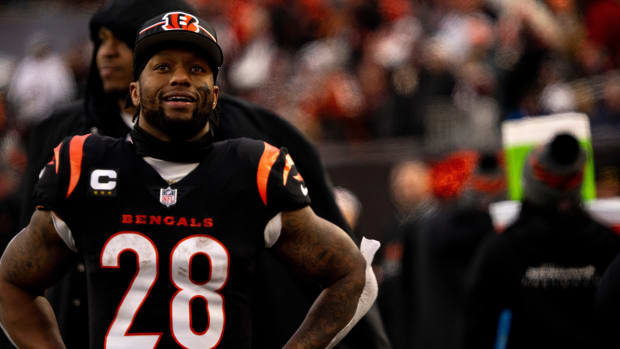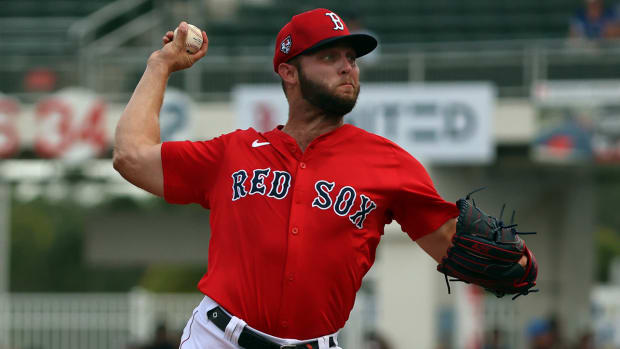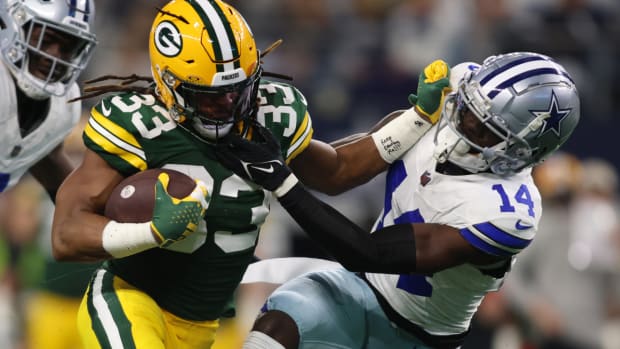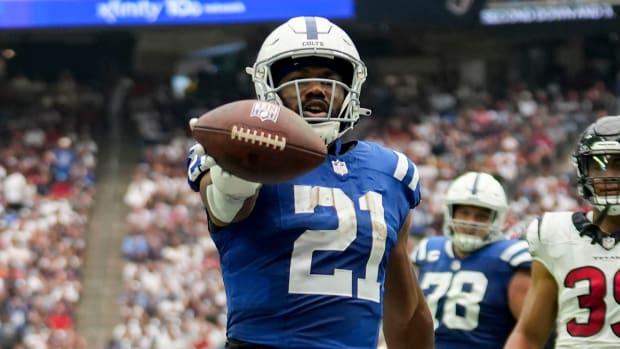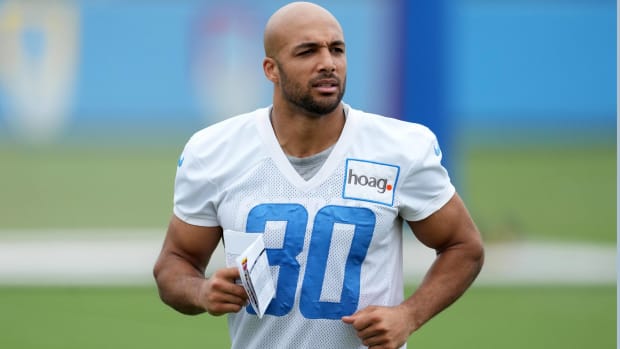Fantasy Preview: Second Base
Second Base has traditionally been the bastard child of baseball positions. Rarely do teams draft second basemen as amateurs; instead, the position is manned by oddball groups of players who lack the range to play shortstop or the arm to play third base. There have been many great second basemen, but generally their skills go overlooked; Jeff Kent (2000) is the only one to win an MVP award since Ryne Sandberg in 1984.
In fantasy baseball, however, the story is a little different, mostly because second basemen tend to be fast, and accumulating a lot of stolen bases can make up for a lot of deficiencies elsewhere. And while there are some real duds at second base -- you don't want to be the guy who winds up with Ray Durham -- there are also some legitimate fantasy stars at the position, enough so that it is worth considering investing in a second baseman early.
Is he better in real life than Chase Utley? Not by a long shot. But is he better in fantasy? Yes, probably. Rotisserie baseball is all about scarcity, and Roberts offers the scarcest quality of all: stolen bases. More important, he can provide these steals while holding his own in the other offensive categories, particularly batting average and runs scored. He also has an intangible factor working for him: if Roberts is traded to a National League team like the Cubs, he'll benefit from facing off against weaker pitching and might also get better players hitting behind him to enable him to score more runs.
Speaking of differences between real life and fantasy baseball, Upton's second base defense was a real problem for the Rays, but their attempt to play him there means that he'll be eligible both at second and in the outfield for this season. While it's hard to put a price on that kind of flexibility, that plus the possibility of a Gary Sheffield-type of power breakout are worth an early draft pick.
Kinsler is better known as a power hitter, but he quietly stole 23 bases last year and is the only player on this list projected for 20-20 numbers. Does it help fantasy players if the Rangers follow through with their plan to hit him leadoff? On balance, yes. He'll gain runs scored while losing RBIs, but the tiebreaker is that players at the top of the lineup get a couple extra at-bats each week.
The difference between the top four second basemen is marginal; we have Roberts projected at $33 in a standard auction league, Upton at $30, Kinsler at $29 and Utley at $28. But most people would expect to see Utley at the top of the pack, so what gives? Firstly, PECOTA thinks he'll hit closer to his lifetime average of .300 than last year's .332. Secondly, hand injuries like the one he suffered last year can tend to recur, so there's a little bit of injury risk involved. And third, he's behind the curve from other second basemen in terms of steals. If you can get Utley at the right price, by all means do so -- but he isn't heads-and-shoulders above his competitors, and chances are someone else will overpay.
Here's another guy you should led somebody else bite the bullet on. Phillips is going to be a wee bit overrated after his 30-30 season. He's only had one season in his career where he's performed at anything near these levels, and his mediocre plate discipline suggests that his batting average will decline.
Uggla has sort of become the Rob Deer of second baseman, a slow player who will put up numbers in the power categories at the expense of most other things: exactly the inverse of your typical second-base skill set. The key here is how the rest of your categories are balancing out. If you're counting on a second baseman for batting average and stolen bases -- you might rank him lower than this. But if you have a bunch of Juan Pierres in the outfield and need to counterbalance, he's worth an investment.
Your classic high-risk, high-reward pick. Weeks possesses both power and speed, he's hitting at the top of an excellent lineup, and his plate approach is sound enough that he should improve his batting average. But he's also a guy who has never had more than 409 at-bats in a season, is in the midst of terrible spring training, and has never quite gotten the different parts of his game to sync up. On balance, I would take the gamble here.
Love this guy. Johnson is a complete and well-balanced player hitting at the top of a good lineup, and he should no longer have to worry about losing platoon at-bats to Yunel Escobar now that they each have jobs to themselves. Less upside than most other players on this list, but he can be a cog on a championship-caliber fantasy roster.
PECOTA's been a fan of Pedroia since he was in diapers. But he's also the sort of player who could be the subject of an irrationally exuberant bidding war between the Red Sox fans in your league, who will expect him to improve upon his excellent rookie numbers while not recognizing that he has inherent limitations in both the power and speed departments. Still, if he hits .330 banging doubles off the Green Monster, it wouldn't come as much surprise.
Kendrick is the subject of intense debate in the stathead community. Some believe that he's one of the more natural hitters for batting average since Tony Gwynn, while others take one look at his 61-9 strikeout-to-walk ratio and turn the other way. PECOTA comes out slightly toward the pessimistic side of the equation. At the same time, his price could be deflated after a year in which injuries held down his counting numbers.
What's this? An underrated Yankee? Young players who have accomplished this much by in the big leagues before they reach their 25th birthday are rare -- as in, Cano-could-make-the-Hall-of-Fame rare. But his numbers have been held down because he's been stuck toward the bottom end of the Yankee batting order. If Joe Girardi shuffles his lineup and Cano is bumped upward, he suddenly shoots up to No. 5 or No. 6 on this list.
A lot of red flags here, or at least flashing yellows. Slow players that depend heavily on batting average are inherently risky, especially in their 30s, and especially when they play the middle infield. And Polanco has had his share of injury problems in the past. At his best, he's a two-category player -- and his best season is behind him.
































